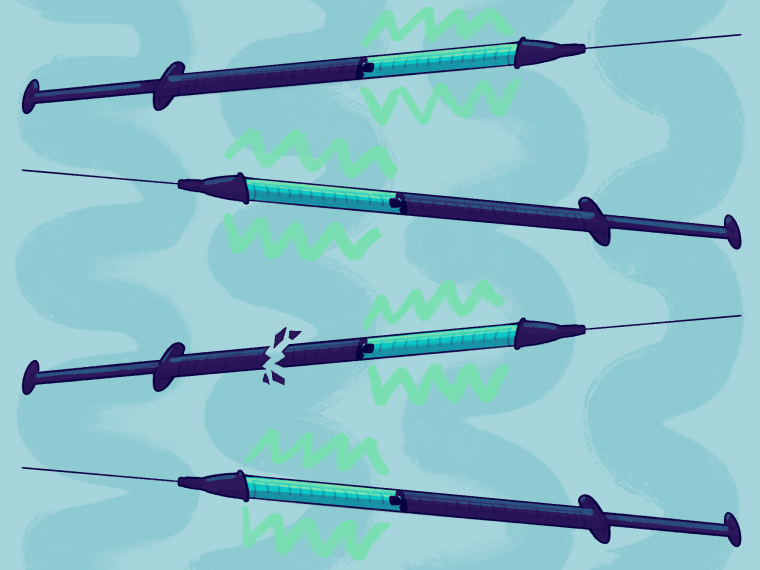Forum | Staff Columnists
Why the J&J pause shouldn’t stop you from getting vaccinated
 HN Hoffmann
HN Hoffmann On April 13, the CDC and FDA suggested that organizations halt the distribution of the Johnson & Johnson Janssen COVID-19 vaccine, due to the fact that there have been 6 reported cases of severe blood clots in the United States that appear to be in response to the vaccine. To date, almost 7 million doses of the J&J/Janssen vaccine have been distributed, raising alarm amongst individuals who have received the vaccine.
I understand the concern. We’re finally nearing the beginning of the end of this pandemic with the emergence of the vaccine, only to learn that for some individuals, one of the vaccines could potentially cause a blood clot. Coupled with an already existent hesitancy towards vaccinations, the findings of the blood clot potential in the J&J/Janssen vaccine are notably concerning. However, in times like this, we must really know and assess the risks and the benefits of the situation.
It’s important to note that the likelihood of clotting happening to those who have already received the J&J/Janssen vaccine is slim. Johnson & Johnson stated that the presentation of the blood clot disorder after receiving the vaccine is “extremely rare.” Simple math—without any additional statistics—shows that if 6 of nearly 7 million people have formed blood clots post the vaccine, then the probability of others getting these blood clots is approximately 0.00009%. Compare this number with other reports indicating that you have a higher chance of forming blood clots from flying airplanes or taking contraceptive pills than you do with having received the J&J/Janssen vaccination. Other reports indicate that the vaccine distribution pause was more of a precautionary measure, seeing as there has not been an association found between the J&J/Janssen vaccine and the formation of blood clots. All of this illustrates that the J&J/Janssen vaccine puts you at no higher risk of forming a blood clot than the general population.
In comparison, the odds of contracting the COVID-19 virus are quite high. In St. Louis county, for groups of 25 people, there is an 11% likelihood that someone within that group has COVID-19. In Missouri as a whole, the 7-day moving average of daily new cases of COVID-19 is 655.6, or 10.7 new cases per every 100,000 individuals in the state. These data illustrate that there is a significantly higher chance of contracting the COVID-19 virus than there is the chance of getting blood clots from the vaccination.
To date, we know that 3,017,265 lives have been lost globally due to the COVID-19 virus, 567,210 of those deaths having occurred in the United States. Immediate symptoms of the virus include fatigue, headaches, chest pain, fever, shortness of breath and/or cough. According to the World Health Organization (WHO), approximately 10-15% of COVID-19 cases progress to severe disease. If an individual were to contract a severe case of the disease, they could become hospitalized, which could lead to post-hospitalization effects of post-intensive care syndrome (PICS) or post-traumatic stress disorder (PTSD). Additionally, COVID-19 can potentially damage one’s heart, lungs and brain, leading to long-term health difficulties.When it comes to questioning whether or not to receive the vaccination, it’s important to recognize that there is a far higher possibility of having dangerous health outcomes from the COVID-19 disease than there is of having dangerous health outcomes from the COVID-19 vaccinations. Thus far, the Pfizer and Moderna vaccines have proven quite effective in keeping individuals from contracting the vaccine and nearly eliminate the risk of severe disease from COVID-19. It’s reasonable to be concerned about the health outcomes of vaccinations, but it’s important to break down the information to really assess the potential harm versus the potential benefit when it comes to vaccinations. The COVID-19 vaccination is our ticket to returning to some level of normalcy. Do the research, know the risks and the benefits and most importantly, get vaccinated.
